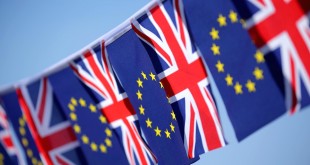Relief. This is the word that best describes London’s and Brussels’s reaction to the hearing of the Scottish referendum results. By a margin of 55% to 45%, Scots voted “No” to the question “Should Scotland be an independent country” on September 18th. Thereby, they ensured the continuation of the British state and identity, as well as the integrity of the European Union.
Decisive role for the clear victory of the unionists played the pledge signed by the three biggest UK political parties, namely the Conservatives, Labour and the Liberal Democrats during the referendum campaign. The agreement foresees that more powers would be devolved to Scotland, if Scots rejected independence. According to the timetable to deliver change, the draft legislation which provides more devolution on tax, spending and welfare will be ready by January.
The British Prime Minister expressed his delight that the UK would remain together. Mr. Cameron promised that commitments for further powers for the Scottish parliament, based at Holyrood, Edinburgh will be honoured “in full”. He added that the people of England, Wales and Northern Ireland must have a bigger say over their affairs.
Scot’s decision to reject independence has been welcomed by the US president Barack Obama, the European Commission and several EU Heads of State. “Through debate, discussion, and passionate yet peaceful deliberations, they reminded the world of Scotland’s enormous contributions to the UK and the world” said Mr. Obama.
A sigh of relief was breathed in Brussels too after the secession of Scotland was avoided. The EU technocrats have been relieved from a huge “headache” caused by the prospect of having a pro-independence outcome. A “Yes” would constitute the most serious challenge that the EU has so far been confronted with putting in danger the consistence of the European structure itself.
“The European Commission welcomes the fact that during the debate over the past years, the Scottish government and the Scottish people have repeatedly reaffirmed their European commitment,” Commission President Jose Manuel Barroso said.
By contrast, should “Yes” had prevailed, the repercussions would have been extremely damaging for the country and the British economy. A 307-year old union would have crumbled, sterling would have plunged and UK’s position in the world alongside its EU membership would have been seriously questioned. Such a scenario has tellingly been averted.
Scotland has opted for union with the United Kingdom, signalising that it is “Better Together”, at least for the next generation, if not for lifetime. Moreover, it is apparent that nationalists have experienced a decisive defeat. The question, therefore, that comes up is the following: “Is the Scottish referendum result sufficient to discourage analogous secessionist movements in other EU Member States, namely in Belgium, Spain, France or even in Italy”? All eyes on the Catalan referendum scheduled for 9 November 2014.
Di Eva Sali






